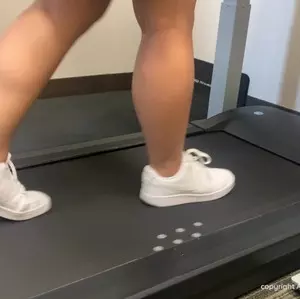- Home
- Medical news & Guidelines
- Anesthesiology
- Cardiology and CTVS
- Critical Care
- Dentistry
- Dermatology
- Diabetes and Endocrinology
- ENT
- Gastroenterology
- Medicine
- Nephrology
- Neurology
- Obstretics-Gynaecology
- Oncology
- Ophthalmology
- Orthopaedics
- Pediatrics-Neonatology
- Psychiatry
- Pulmonology
- Radiology
- Surgery
- Urology
- Laboratory Medicine
- Diet
- Nursing
- Paramedical
- Physiotherapy
- Health news
- AYUSH
- State News
- Andaman and Nicobar Islands
- Andhra Pradesh
- Arunachal Pradesh
- Assam
- Bihar
- Chandigarh
- Chattisgarh
- Dadra and Nagar Haveli
- Daman and Diu
- Delhi
- Goa
- Gujarat
- Haryana
- Himachal Pradesh
- Jammu & Kashmir
- Jharkhand
- Karnataka
- Kerala
- Ladakh
- Lakshadweep
- Madhya Pradesh
- Maharashtra
- Manipur
- Meghalaya
- Mizoram
- Nagaland
- Odisha
- Puducherry
- Punjab
- Rajasthan
- Sikkim
- Tamil Nadu
- Telangana
- Tripura
- Uttar Pradesh
- Uttrakhand
- West Bengal
- Medical Education
- Industry
Perturbation-based balance training reduces fall risk in adults: JAMA

A new study by Jens Eg Nørgaard and team found a statistically significant of 22% decrease in daily-life fall rates in subjects who underwent an 80-minute perturbation-based balance training (PBT) session. The findings of this study were published in the Journal of American Medical Association.Falls are prevalent and the primary cause of injury in older persons, but a promising...
A new study by Jens Eg Nørgaard and team found a statistically significant of 22% decrease in daily-life fall rates in subjects who underwent an 80-minute perturbation-based balance training (PBT) session. The findings of this study were published in the Journal of American Medical Association.
Falls are prevalent and the primary cause of injury in older persons, but a promising and time-efficient strategy known as perturbation-based balance training may help. As a result, the purpose of this study was to examine the effects of a 4-session treadmill PBT intervention against routine treadmill walking on daily-life fall rates in community-dwelling older individuals.
This 12-month, assessor-blinded randomized clinical study was held at Aalborg University in Denmark from March 2021 to December 2022. Participants were 65-year-old or older community residents who could walk without assistance. PBT (intervention group) or treadmill walking (control group) were assigned to participants. The data was analyzed using the intention-to-treat approach. Participants in the intervention group were subjected to four 20-minute sessions of PBT, which included 40 slip, trip, or combined slip and trip disturbances.
The primary outcome was the daily fall rates for the year after the third training session, which were gathered from fall calendars. Secondary outcomes were the percentage of individuals who fell at least once and fell often, time until the first fall, fractures and injuries associated with falls, interactions with healthcare providers associated with falls, and slip and fall accidents that occurred every day.
The key findings of this study were:
1. The experiment involved 140 highly functional older persons who live in the community, 57 (41%) of whom had fallen during the previous year.
2. No discernible difference was seen between perturbation training and other fall-related parameters or the fall rate in normal life.
3. The rates of laboratory falls did, however, significantly decline at the post training evaluation, 6-month follow-up, and 12-month follow-up.
Participants in this RCT who underwent an 80-minute PBT intervention saw a statistically significant 22% decrease in the rate of daily falls. Other fall-related variables that are relevant to everyday life were not significantly affected, however, a statistically significant reduction in falls was seen in a laboratory context.
Reference:
Nørgaard, J. E., Andersen, S., Ryg, J., Stevenson, A. J. T., Andreasen, J., Oliveira, A. S., Danielsen, M. B., & Jorgensen, M. G. (2023). Effect of Treadmill Perturbation-Based Balance Training on Fall Rates in Community-Dwelling Older Adults. In JAMA Network Open (Vol. 6, Issue 4, p. e238422). American Medical Association (AMA). https://doi.org/10.1001/jamanetworkopen.2023.8422
Neuroscience Masters graduate
Jacinthlyn Sylvia, a Neuroscience Master's graduate from Chennai has worked extensively in deciphering the neurobiology of cognition and motor control in aging. She also has spread-out exposure to Neurosurgery from her Bachelor’s. She is currently involved in active Neuro-Oncology research. She is an upcoming neuroscientist with a fiery passion for writing. Her news cover at Medical Dialogues feature recent discoveries and updates from the healthcare and biomedical research fields. She can be reached at editorial@medicaldialogues.in



